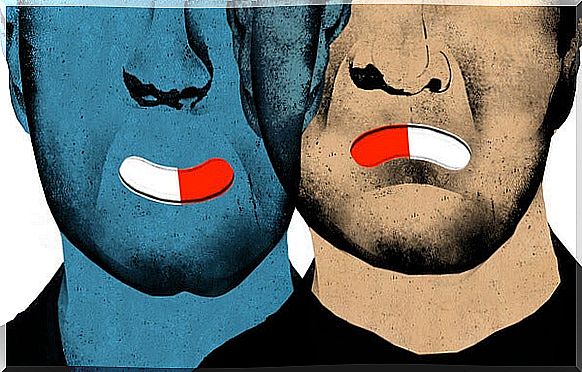Robert Whitaker And His Solid Critique Of Psychotropic Drugs

Robert Whitaker has been one of the most critical voices against psychiatry in recent years. Curiously, he is not a psychiatrist, or a psychologist or anything like that. His profession is that of a journalist and he got into the subject of mental health due to a fact that seemed scandalous to him.
In 1994, the Harvard University School of Medicine published a study in which it was shown that people with schizophrenia worsened when they were administered medication. Likewise, it showed that in so-called “third world” countries, patients who did not have access to medications presented a more favorable evolution.
Robert Whitaker’s journalistic nose led him to inquire about the subject. From this he published a series of articles in the Boston Globe . Then he wrote a book that in a short time became a classic on the subject. It’s called Anatomy of an Epidemic and it calls into question, based on very precise data, what is known about psychotropic drugs so far.
Robert Whitaker and his research
The first fruit of Whitaker’s research was the book Mad in America . There he presented the conclusions of the Harvard study and the World Health Organization itself. According to these, schizophrenics in the more developed countries had a poorer evolution, despite having access to the latest generation antipsychotics. Exactly the opposite was true in poor countries.

After that publication, a great controversy was unleashed, led by psychiatrists. They accused him of being lax in his appraisals. That is why Robert Whitaker undertook a much more thorough and long-term investigation. To do this, he focused exclusively on people who were diagnosed with depression and who were taking medication to treat their problem.
One of the data that he concluded was the fact that mental illness had grown in the United States in an alarming way. And this growth coincided with the distribution and use of psychotropic drugs. While in 1955 there were 355,000 inmates in psychiatric institutions in the USA, by 1985 the number had reached 1,200,000 patients. How to explain that the greater the number of treatments available, the more sick people emerged?
Some facts about Whitaker’s work
Based on the above figure, Whitaker increased the detail of his investigations and his observation. He analyzed specific cases and available statistics. Thus he came to the conclusion that before the appearance of chemical antidepressants , people who suffered from this disease had stages of increase in their symptoms, but then they remitted almost naturally.

Robert Whitaker concludes, from the figures available to him, that antidepressants appear to have a positive effect in the first two years of treatment. However, if the use of these drugs is prolonged, people get worse and their depression becomes chronic.
In fact, Whitaker proposes something even more troubling. According to the data he was able to collect, prolonged use of antidepressants generates psychotic episodes. He points out that the cases analyzed show that when this occurs, psychiatrists simply change the diagnosis of depression to another of bipolarity. It indicates that something similar happens with the antipsychotics that are prescribed to people with schizophrenia.
What happens then?
Robert Whitaker’s approaches caused great controversy, even within Harvard University itself. The journalist was not satisfied with making a diagnosis of the situation, but openly accused the large pharmaceutical multinationals of being behind this phenomenon. He points to them as those responsible for chronifying mental problems to build a captive market.
Obviously many psychiatrists have rebutted Whitaker. However, Marcia Angell, editor-in-chief of the New England Journal of Medicine in 2011, endorsed the journalist’s findings. Not only did she find evidence that she could be right, but she was also one of the promoters of a project for Whitaker to train psychiatrists in the United States.

Those who have been aware of the controversy point out that the main proof that Robert Whitaker has a solid and impeccable job is the fact that so far no pharmaceutical company has sued him for his claims. If he contained any falsehoods, he would surely have been taken to court to recant and thus the prestige of the pharmaceutical companies remained intact. His work is fresh, interesting and valuable. It is worth knowing.









